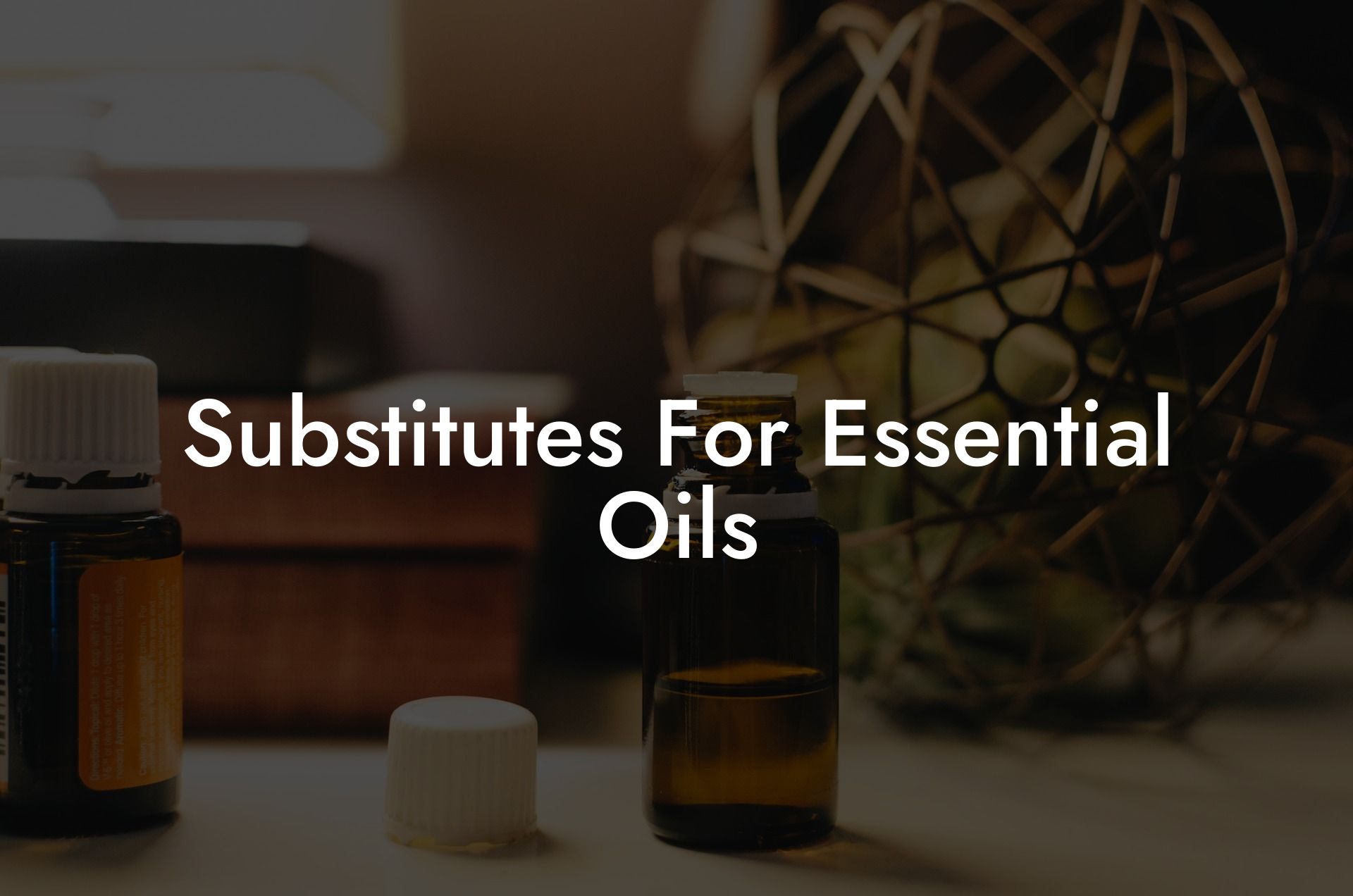Are you ready to explore the world of essential oil substitutes? The use of essential oils has skyrocketed in recent years as more and more people discover the incredible benefits they can offer. From boosting mood to improving overall well-being, these powerful substances are a must-have for any natural health enthusiast. But what happens when you’re out of your favorite essential oil, or you’re looking for a more cost-effective alternative? That’s where essential oil substitutes come in! In this article, we’ll dive into the various options available, how to choose the right substitute, and why you should consider incorporating them into your daily routine.
Table of Contents
Why Use Essential Oil Substitutes?
There are several reasons why you might want to explore essential oil substitutes:
– Availability: Sometimes, your favorite essential oil might be out of stock or not available in your area.
– Cost: Some essential oils can be expensive, and finding a more affordable alternative can help save money without sacrificing benefits.
– Safety: Some essential oils may not be safe for use around pets, children, or sensitive individuals. In such cases, using a substitute may be more appropriate.
– Variety: Incorporating different essential oils into your routine can help you achieve a more well-rounded and balanced approach to aromacology.
How to Choose the Right Substitute
When looking for an essential oil substitute, you’ll need to consider:
– Therapeutic properties: Make sure that the substitute has similar benefits to the essential oil you’re replacing. This will ensure that you still receive the desired effects.
– Chemical composition: Choose a substitute oil with a similar chemical profile to the original oil, as this will impact the scent and therapeutic properties.
– Scent: The aroma of the substitute oil should be somewhat close to the original oil, especially if used for aromatherapy purposes.
– Skin sensitivity: If you’ll be using the substitute oil topically, ensure that it’s safe and non-irritating for your skin type.
Essential Oil Substitutes
Here are some common essential oil substitutes to consider:
- Lavender: Some possible substitutes include geranium, chamomile, or clary sage.
- Rose: Look for direct substitutes like geranium or rose geranium, or choose palmarosa or ylang-ylang for a softer scent.
- Eucalyptus: If you’re out of this oil, then you can opt for substitutes such as tea tree, camphor, or rosemary.
- Peppermint: Try substituting with spearmint, eucalyptus, or wintergreen for a similar cooling effect.
- Lemon: When you’re in need of a citrusy scent, try using grapefruit, lime, or bergamot as an alternative.
Keep in mind that the effects and aromas of substitute oils may not be exactly the same as the original essential oil, but they can still provide similar therapeutic properties and benefits.
Substitutes For Essential Oils Example:
Let’s say you’re experiencing stress and usually turn to lavender essential oil for its calming effects. However, you’ve run out of lavender oil, and you’re looking for a suitable substitute. In this case, you could consider using geranium, which has a somewhat similar scent, and offers stress-relieving properties. You can use geranium in your diffuser, or even combine it with other calming oils like clary sage or chamomile for a more robust effect.
We hope you found this guide on essential oil substitutes helpful and informative. By incorporating substitute oils into your aromacology routine, you’ll be able to save money, add variety to your scents, and still receive the incredible benefits that essential oils have to offer. If you enjoyed this article, don’t forget to share it with your friends and family, and explore other guides on Oshu Oils for even more essential oil information. Also, make sure to check out the Oshu Oils range of essential oils to discover new favorites and enhance your overall well-being.





















